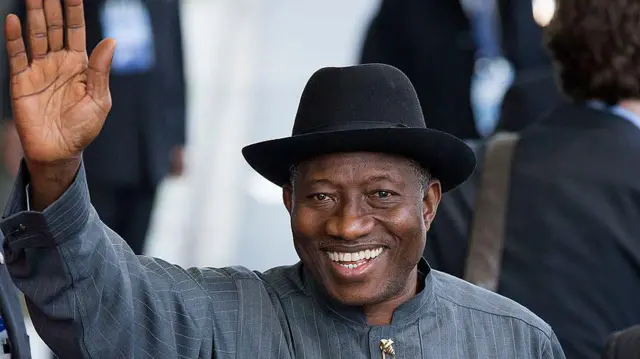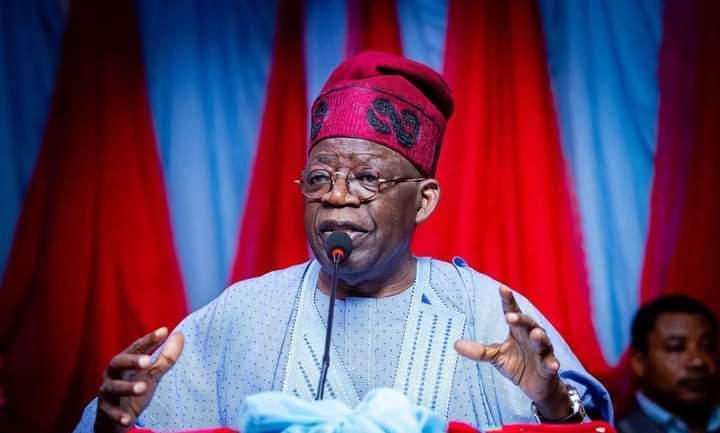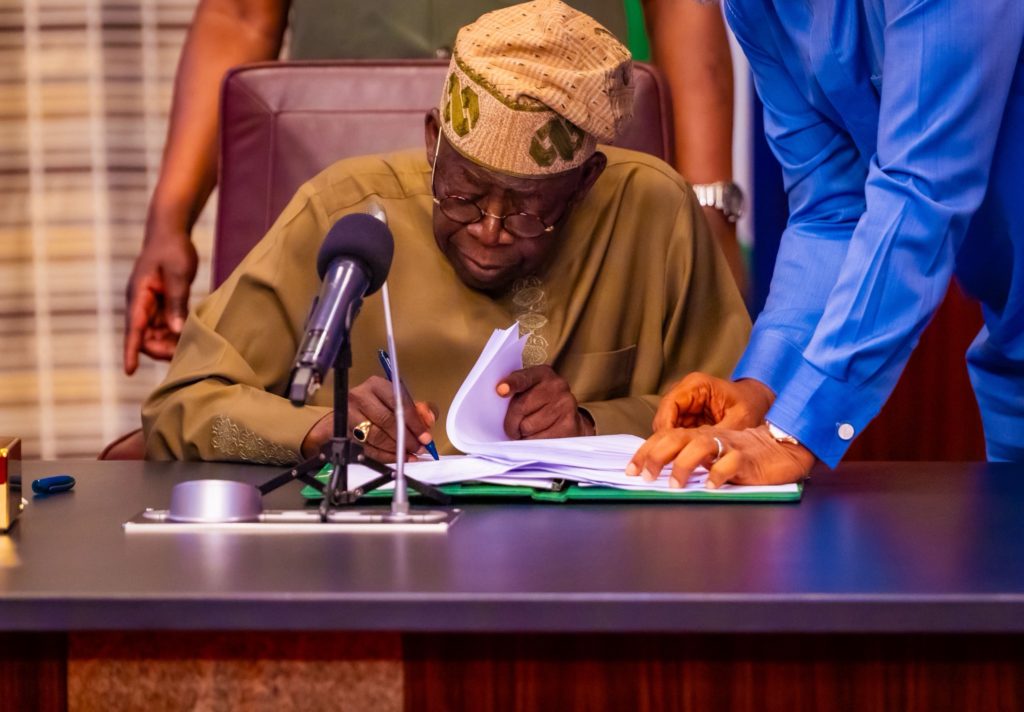by Asiwaju Lanre
It’s therefore annoying to read and hear Ogbeni Aregbesola blame the Federal Government for his inability to pay workers. Of course, the mismanagement of Nigeria’s oil revenue is a valid excuse, but it’s too simplistic and disingenuous to continue to blame a government that has no control over oil price for this crisis.
|
Ogbeni Rauf Aregbesola, Governor of the State of Osun, has been in the news of late owing to the inability of the state to pay salaries of workers. Recently, a friend and keen reader of my articles accused me of not condemning Ogbeni simply because I’m a member of the All Progressives Congress (APC). Not even my social media posts on the matter could suffice. Fair enough, he wanted me to pen my condemnation in an article. But beyond that, I saw a bigger issue; he wasn’t interested in understanding why workers are being owed. To him, salaries have to be paid. For starters, I’ve stayed off this issue because it’s quite emotional. My mum is a civil servant and so, I understand the effect of owing workers 7 months’ pay. I truly empathize with Osun workers and indeed, workers who are owed nationwide. But it’s important to understand why Osun is in this crisis. Blast from the Past In 1991, the State of Osun was created out of the old Oyo State. With a land mass of 9026 km2, 30 local governments were created. Compare this with the present Ondo State with a similar population of 3.4 million people, bigger land mass of 15,820 km2 but only 18 local governments. It’s important to note that more local governments invariably mean more workers and this perhaps explain why Osun has the second biggest civil service, after Lagos, in the Southwest. Interestingly, the Osun people recently in a referendum overwhelmingly voted for the creation of 27 more local governments areas. In 2000, President Olusegun Obasanjo signed the Minimum Wage Amendment Act into law, thereby effectively increasing the national minimum wage for civil servants to N5,500. The then Governor of Osun State, Chief Bisi Akande, made it clear that the state didn’t need more than 7,000 out of the 21,000 workforce to function. His administration had no other choice than to retrench thousands of Osun workers in order to reduce cost of running government and free funds for critical infrastructure. It’s worthy of note that Baba led by example. He remains the only governor who didn’t create the superfluous office of the First lady. But we all know what happened to Baba Akande. The then opposition in the state, PDP, capitalized on the issue and coupled with Obasanjo’s rigging machine, Baba was voted out. On assumption of duty as governor in 2007, Prince Olagunsoye Oyinlola recalled thousands of the sacked workers, thereby increasing the state’s wage bill again. Not long after, violence in the Niger Delta escalated and the consequent disruption of oil production reduced oil revenue. While the Yar’Adua government was battling to address the crisis, the price of oil crashed from a peak price of $145 in July 2008 to below $60 in November 2008, thereby putting further pressure on the economy. Testifying at an investigative panel established by Aregbesola to probe the previous administration, Prince Oyinlola stated that due to the reduction in federal allocation, salaries of civil servants and pension of retirees gulped 90 per cent of the state earnings. Hence, the state obtained N18.38bn UBA loan—out of which N10bn was drawn & only N1.8bn was repaid—to fund the construction of six stadiums, six campuses of the state university, UNIOSUN, rehabilitation of nine technical colleges, among other infrastructures. Was this how best to spend N10bn? I believe that answer is best left for the Osun people. Regrettably, the Oyinlola administration didn’t not significantly raise the internally generated revenue or reduce the cost of governance. Following the proclamation of Amnesty for Niger Delta militants in 2009 and the boom in global oil price in 2010, oil revenue increased again. On assumption on office in November 2010, Aregbesola decried the debt profile of the state. But having promised the Osun people a lot, he had little options. His government immediately got a N25bn First Bank credit line facility,—out of which only N8.6bn was drawn—to pay off the UBA debt and thereafter, floated N60bn bond in the capital market, out of which only N41.4bn—N30bn bond and N11.4bn Sukuk Al Ijarah—has been assessed by the state. Welfarist Government But how did Ogbeni spend this loan? 20,000 jobless youths were immediately employed through O’YES and an additional 7,000 engaged through the state’s agriculture programme, O’REAP. 300,000 pupils are daily fed in public schools via O’MEALS, senior secondary students were given free learning tablets and citizens rode in free trains to & fro Lagos during festive periods. Furthermore, dozens of public schools, hospitals and roads were built. Among other infrastructure works, an airport with the capacity to provide aircraft maintenance services is being built. The civil service wasn’t left out of the bonanza. Ogbeni approved N19,000 minimum wage—without any worker being sacked—and the payment of 13th month salary every December. Although, Aregbesola has kept a small cabinet,—he hasn’t appointed commissioners since he sworn-in for a second term—his government has failed to reduce the cost of governance and to diversify the state’s revenue base. Even though IGR has significantly increased, the increment was largely from PAYE. As of today, the State of Osun lacks the businesses that can via taxes support its loan repayment plan. Recently at the Bola Tinubu colloquium, the governor gave a summary of the state’s finances. Last year’s oil price crash had reduced federal monthly allocation by 40 per cent from an average of N4.2bn to N2.6bn. Hence, the state requires ca. N1bn every month to clear its N3.6bn wage bill. This is even without considering monthly deductions to service the state’s debt and other recurrent expenditures. The state had since exhausted its cash reserve and now accumulated a further N12bn debt, all spent paying workers. It’s therefore annoying to read and hear Ogbeni Aregbesola blame the Federal Government for his inability to pay workers. Of course, the mismanagement of Nigeria’s oil revenue is a valid excuse, but it’s too simplistic and disingenuous to continue to blame a government that has no control over oil price for this crisis. Ogbeni must acknowledge that his welfarist programmes put a strain on the state finances and the least I expect of him, as an Omoluabi, is to take some responsibility for this mess. Dangerous Path Today, no bank is ready to borrow State of Osun more money because of the high risk of payment default. But let’s assume that banks are ready to provide more money, I bet workers don’t care if government accumulates N100bn debt as long as salaries are paid. Perhaps, this explains why the national leaderships of Labour and Trade unions aren’t worried that the Federal Government is borrowing to pay salaries and fuel subsidy in contravention of S41 of Fiscal Responsibility Act, 2007. As long as salaries are paid, I guess it doesn’t matter to them if hospitals have no drugs, schools have no teaching tools, street lights aren’t lit, wastes aren’t cleared, roads aren’t swept, emergency response teams aren’t funded, roads aren’t repaired, etc. No one is even talking about funding the capital expenditure component of the budget. It’s most unfortunate that Labour and Trade unions have now been reduced to wage negotiating groups. Nigeria’s organized labour, which is barely 3 per cent of our population, can’t pretend that once salaries are paid, all Nigerians are happy. Without mincing words, these unions are a part of Nigeria’s problems. Nigeria realized ca. N426bn from the sale of power generation and distribution companies but is paying N384bn—over 90% of revenue generated—as severance to ex-workers of Power Holding Company of Nigeria (PHCN). The last Ekiti gubernatorial election also saw labour unions massively mobilize against an incumbent because of his alleged harsh reforms. Nigerians must recognize that government doesn’t simply exist to pay salaries and emoluments. Because if it were to be so, why then did we fight for democracy? Going Forward Folks must understand that what’s happening in Osun is a national crisis and this isn’t the time for APC/PDP blame game. Elections have been won and lost. It’s now time to begin the journey to statehood. It’s important to note that I’ve deliberately skipped corruption because not every of our problem is corruption. Some are a function of our skewed federal system, bad policies, incompetence and lack of capacity and irresponsible citizenry. I find this quote credited to Jean-Claude Juncker, President of the European Commission, thought-provoking: “We all know what to do, we just don’t know how to get re-elected after we’ve done it.” Undoubtedly, some of our leaders know what to do and I very much believe Ogbeni falls in that bracket. Thankfully, he can no longer seek re-election as governor. Hence, he should damn the consequences and reduce the state’s over-bloated civil service. Furthermore, he needs to broaden and diversify the state’s tax base, block revenue leakages and create an enabling environment for investments. A state that collects the least federal allocation in Nigeria has no business being a welfarist state. Ogbeni must therefore tame that inner socialist in him. As oil price increases and more revenue accrue, he must reduce the state’s budget deficit by cutting off some of those freebies. Sound Fiscal Policy Despite the incessant mention of diversification by government officials, Nigeria remains a mono-product economy and because we have no control over the price of crude oil, government should at all times be prepared for an economic bust. Although there is a huge infrastructure gap, Nigeria must reduce its debt during economic boom so that it becomes easier to borrow money to fund viable public investment projects during a slump—the current Osun salary crisis aptly explains this point. Unfortunately, this would mean belt tightening during a boom, and therefore it’s normal for citizens not to understand. But if we must develop, tough decisions have to be taken. In the wake of the revenue crisis of 2008, the federal government resorted to borrowing to fund the budget. But when revenue grew steadily in 2010, rather than balance our budget, more revenue was lost to corruption and leakages, the wage bill ballooned and frivolous expenditures increased; thus needing more loans to fund the budget. The Buhari administration has to take unpopular decisions like removal of fuel subsidy and rationalization of the civil service as soon as government has money to pay terminal benefits. Popular decisions like prosecution of corrupt persons, sale of presidential planes, and reduction in the salaries and allowances of public officials will soften public outcry. But let me clear here, any citizen who collects handouts during elections have no moral ground to ask public officials to take a pay-cut. We have a duty as citizens to become more responsible. While APC had promised in its manifesto to implement welfarist programmes, commonsense dictates that the party reviews its policies. The Buhari government should block leakages, recover stolen funds, reduce the size of government and limit our exposure to more loans. It must understand that its business isn’t to create jobs but to create an enabling environment for businesses. Government must prioritize its investments. Five sectors I consider worthy of government revenue are security, education, health, agriculture and transport. Public officials have a duty to lead by example, show sincerity of purpose and demonstrate capability. Nigerians wouldn’t probably have resisted the removal of fuel subsidy in 2012 if the Jonathan government had shown itself to be prudent and competent. Even though today I want fuel subsidy removed, I’ve no regret antagonizing the move in 2012 as the recent PwC report on NNPC and allegations of corruption in the management of SURE-P funds, justified my position that the Jonathan government couldn’t be trusted with the custody of more funds. In order to effectively sell its reform programmes, the Buhari administration must endeavour to retain the trust of Nigerian4
—————– Asiwaju Lanre tweets from @Lenin4real Op-ed pieces and contributions are the opinions of the writers only and do not represent the opinions of Y!/YNaija. |
| ———————- |














